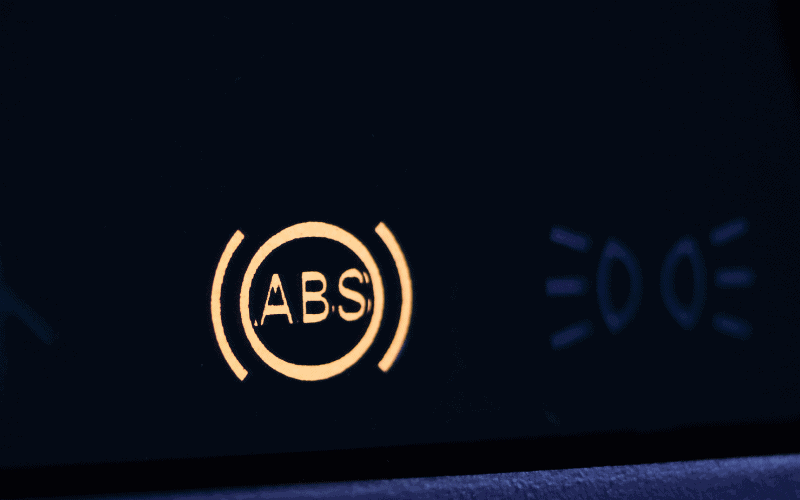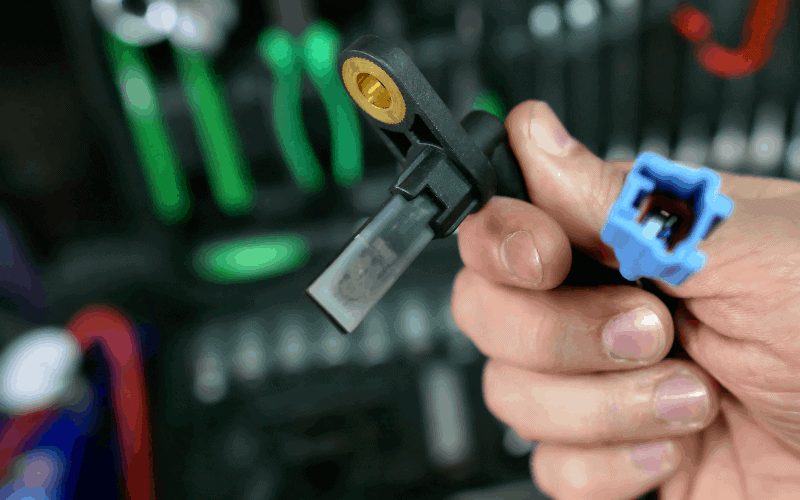It is not obvious that a faulty component can bridge an entire system and cause it not to function as supposed.
Cars (and automobiles in general) come with a lot of sensitive, computerized components, and when one of these stops functioning, things could go wrong. So, what can a faulty ABS sensor cause?
The ABS sensor is responsible for quite a bunch of things. It is the gear that sends out digital/analog signals to traction control systems.
If the ABS outputs a wrong signal, the control systems will read the error signal and react to it; thus, leading to loss of stability and other possible ABS issues. We’ll look more in-depth into this question below.
Let’s get started!
What Can A Faulty Abs Sensor Cause?

The anti-lock braking system, ABS, is a modern car technology found in virtually all cars manufactured from 2000 to date. It comprises just two (2) components, a wheel speed sensor (also called ABS sensor), and the ABS control module.
The wheel speed sensor is actually placed in the wheel hub of all the wheels in a car. This simply implies that a car with four wheels has up to four (4) wheel speed sensors, and a truck/van with more wheels (let’s say eight) has 8 ABS sensors.
It is the job of each ABS sensor to monitor the speed and rotation of a wheel and report it to the ABS control module. If the wheels are running at the same speed and spinning accordingly, the ABS sensor sends a good signal to the control center, and nothing would happen.
In contrast, when a wheel isn’t spinning correlatively with the others, its ABS sensor would send an error signal to the control system.
The control system reads these error signals and flashes the ABS light on the car’s dashboard. However, if the driver doesn’t act immediately, the ABS control would activate driver-assistance modules to keep the car running at a good speed and under control.
But then, the ABS sensor, or wheel speed sensor, can go bad due to weariness, bad wiring, or physical damage on the sensor’s body. When this happens, the sensor will likely send error signals to the ABS control module even though your wheels are in good condition and functioning as supposed.
Now, due to the error signals being sent by the faulty ABS sensor(s), you’ll constantly notice quite a bunch of issues and uneasiness while driving on hilly roads, icy roads, and even on straight roads.
This is because the ABS control will keep engaging other components of the car in a bid to keep the car under control due to a perceived error.
So, below are some of the things a faulty ABS sensor is likely to trigger in a car.
1. ABS Light ON Dashboard
A faulty ABS sensor will illuminate the ABS icon on your car’s dashboard. This is usually the first thing a faulty ABS sensor does.
The moment you see the ABS light on your dashboard, it simply means that you need to check on your ABS sensors and possibly replace them or work on your wheels.
2. Brakes Malfunctioning
Faulty ABS sensors will surely cause your brakes to stop responding quickly. You will notice that your brakes take a longer time to respond. You may also notice that your brake pumps when you press down the pedals.
All these happen because an ABS sensor is sending the wrong signal to the control module; thus, the automated systems controlled by the ABS are trying to adjust to the state of the car (based on the signals they received).
Basically, these are the two things caused by faulty ABS sensors. However, when the sensor is good, but the module is bad, you may experience significant traction loss when driving.
Conclusion
What can a faulty ABS sensor cause? It would push up the ABS light on your dashboard and then cause your brakes to malfunction. ABS sensor problems can lead to accidents; hence, it is a critical situation that requires rapid action.
The moment you notice that your ABS sensor(s) or the control module is faulty, call on a mechanic to troubleshoot and fix the car. Replacing ABS sensors isn’t an expensive fix, but you’d spend much more if you ignore the ABS light and keep driving with a faulty ABS sensor.
